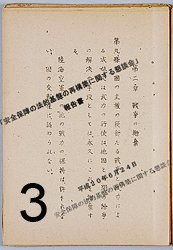(Initially published in the Baltimore Sun, September 10, 2009)
The debate over climate change legislation is beginning to heat up. The American Clean Energy and Security Act was passed by the House and is now before the Senate. The debate on this issue typically takes the form of environmental concerns about global warming pitted against economic fears about the cost of reducing greenhouse gases. It is often framed in left-right terms. But as Americans think about whether to support this legislation, they should ponder the national security implications of climate change.
The recognition that global warming will increase the threats to our national security and place ever greater demands on our military is not new. The Bush administration acknowledged the issue in the 2006 National Security Strategy. A national security think tank comprising retired military officers, including Marine General Anthony Zinni, issued a report on the subject in 2007, identifying the various ways in which man-made climate change will directly affect national security.

 full, this posting is less a summary and more a full report on the substance of this part of the report. There is much to criticize here, but the analysis is left for the fourth and final posting on the report.
full, this posting is less a summary and more a full report on the substance of this part of the report. There is much to criticize here, but the analysis is left for the fourth and final posting on the report.